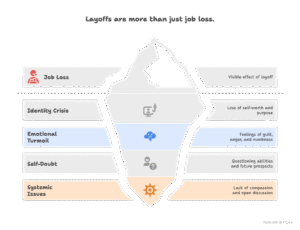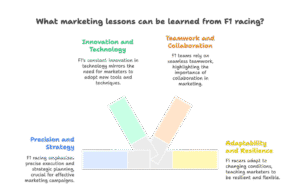
How AI Is Reshaping SEO in 2025
If you’re still writing SEO content the way you did in 2022, you’re already behind. In 2025, SEO is no longer just about optimising for crawlers. It’s about optimising for AI interfaces, generative summaries, — all while remaining human-first.
I have faced the classic SEO dilemma: tons of content, not enough visibility. Once Google’s Search Generative Experience (SGE) rolled out, it was clear that ranking in the top 3 wasn’t enough — we had to be the answer, not just a link to one.
🔍 What Changed in 2025:
- Searches where customers are are now increasingly asking questions to chatbots than searching for answers only on Google. Why? Because chatbots are able to summarise and provide them with concise answers.
- AI-powered overviews (via Gemini / Bard / ChatGPT) – they often summarise pages without the user having to click any links. The information is provided upfront allowing users to consume the content better without having to leave the system.
- EEAT signals from author bios, reviews, citations, and experience-led writing which now matter more than keyword frequency.
- Content needs to answer questions contextually, not just rank for them. If you are still doing this, re-think.
The SGE Era
SGE (Search Generative Experience) is Google’s AI-generated snapshot that appears above search results. Though experimental, the AI-powered search enhancement provides users with interactive and contextual search results, often offering summaries and insights directly on the search page. It pulls content from across the web to answer user queries directly, summarising before a click even happens (zero clicks)
Problem: You may no longer need to rank #1 to be relevant.
Solution: You need to be the source the AI pulls from.
EEAT Becomes Non-Negotiable
EEAT — Experience, Expertise, Authoritativeness, Trust — is central to getting picked up in AI answers.
At MediBuddy, we started tagging content with doctor bios. This meant every content was shared with our doctors for them to review, share feedback, corrected and then taken live with their names alongside the content by linking articles to verified authors, and citing real studies. Traffic didn’t just go up; time-on-page and conversion did too.
Tips:
- Add expert authorship to each article, each content piece you are creating.
- Show proof of experience (case studies, videos, testimonials or even a separate page for the author)
- Cross-link internally
Structured Answers Outperform Fluffy Paragraphs
AI models look for clarity. Bullets, subheadings, and schema markup are now critical.
At Jigsaw, we added FAQs, glossary sections, and “TL;DR” blocks to our content — and saw a ~40% lift in SERP visibility.
Conclusion
To win in 2025’s SEO world:
- Write like an expert, not an intern
- Structure like a librarian, not a blogger
- Think “Would AI summarize this as a useful answer?”
Bottom line: Write for AI, but stay human. Structured answers + author credibility are the new SEO kingmakers.
SEO isn’t dead. It’s just growing up.


